Alapadatok
Év, oldalszám:2021, 2 oldal
Nyelv:angol
Letöltések száma:6
Feltöltve:2021. június 07.
Méret:889 KB
Intézmény:
-
Megjegyzés:
Csatolmány:-
Letöltés PDF-ben:Kérlek jelentkezz be!
Értékelések
Nincs még értékelés. Legyél Te az első!Tartalmi kivonat
May 2020 COVID-19: THE GLOBAL THREAT OF FAKE MEDICINES Since the outbreak of the COVID-19 pandemic, the threat posed by fake medicines and medical products has increased dramatically. Organized crime groups take advantage of the high market demand for medicines, personal protection and hygiene products and make lucrative profits from the sale of counterfeit items. Alongside this illicit trade, criminals also engage in online fraud, scams, email and phone phishing, and malware distribution. � COVID-19: THE GLOBAL THREAT OF FAKE MEDICINES Current trends in fake medicines and medical products In March 2020, INTERPOL coordinated a global operation (Pangea XIII) targeting the online sale of illicit medicines and medical devices, which seized more than 34,000 counterfeit medical goods. To date, the most counterfeited products reported by member countries are medicines (antivirals, herbal medicines and malaria treatments), medical equipment (face masks, disinfectants, fake
coronavirus test kits, gloves and ventilators), and sanitizers (substandard hand sanitizers, gels, soaps and cleaning wipes). Authorities are reporting a significant number of chloroquine seizures. Consumer demand for this product is increasing and criminal groups are responding with counterfeit, unauthorized or diverted medicines. Most of these goods are distributed via e-commerce and social media platforms, rogue pharmacies, messaging applications and the dark web. Criminal networks also carry out prescription fraud using fake paperwork to obtain chloroquine and other medicines under study as potential treatments for the virus. Expected future developments The following trends will continue to develop for the duration of the global pandemic: • Trafficking of fraudulent and counterfeit personal protective equipment (PPE) and anti-viral pharmaceuticals. • Trade in counterfeit products via online markets. • Cyber threats such as malicious domains, malware distribution and
phishing attacks. • Targeted attacks on critical infrastructure such as health service providers. When life-saving products or a vaccine become available, demand will soar, resulting in a parallel increase in the theft and counterfeiting of these medicines. How to spot fake medical products When buying medicines, especially online, follow these guidelines: • Never buy medicines from unknown websites or in a marketplace. • Only buy medicines prescribed by your doctor or healthcare professional. When buying online, make sure the website requires a prescription and has an authenticity certificate. • Be wary of pharmacies making “too good to be true” promises. False offers to watch out for are “cures all types” of a major illness, “money-back guarantee”, or “no risk.” • Check the price against products you usually buy or with reputable providers. If it is substantially cheaper, it is likely to be a fake. • Compare the medicine against your usual prescription.
Check whether it contains different ingredients, claims to have different properties, has a different shape, is not correctly labelled, has an out-of-date or missing expiry date, or the packaging looks badly made. • Do not supply your financial information unless the website has a secure online payment system. The trade in fake medical products has also been linked to credit card fraud and identity theft. INTERPOL‘s response INTERPOL is committed to supporting its 194 member countries to disrupt the illicit activities generated by the pandemic. We coordinate regional and global operations to bring together police, customs and health regulators, and to combine expertise in countering illicit trade, financial crime and cybercrime. Police in member countries can use our system of Notices to share critical crime-related information and can search our 18 databases in real time, while our crime analysis files help identify links between suspects, locations, commodities and illicit
markets. We also provide online training and webinars to build the skills and knowledge of agencies in combating COVID-19 crime threats, a key resource of which is the International Intellectual Property Crime Investigators College. INTERPOL General Secretariat 200 Quai Charles de Gaulle 69006 Lyon France Web : WWW.INTERPOLINT Twitter : @INTERPOL HQ
coronavirus test kits, gloves and ventilators), and sanitizers (substandard hand sanitizers, gels, soaps and cleaning wipes). Authorities are reporting a significant number of chloroquine seizures. Consumer demand for this product is increasing and criminal groups are responding with counterfeit, unauthorized or diverted medicines. Most of these goods are distributed via e-commerce and social media platforms, rogue pharmacies, messaging applications and the dark web. Criminal networks also carry out prescription fraud using fake paperwork to obtain chloroquine and other medicines under study as potential treatments for the virus. Expected future developments The following trends will continue to develop for the duration of the global pandemic: • Trafficking of fraudulent and counterfeit personal protective equipment (PPE) and anti-viral pharmaceuticals. • Trade in counterfeit products via online markets. • Cyber threats such as malicious domains, malware distribution and
phishing attacks. • Targeted attacks on critical infrastructure such as health service providers. When life-saving products or a vaccine become available, demand will soar, resulting in a parallel increase in the theft and counterfeiting of these medicines. How to spot fake medical products When buying medicines, especially online, follow these guidelines: • Never buy medicines from unknown websites or in a marketplace. • Only buy medicines prescribed by your doctor or healthcare professional. When buying online, make sure the website requires a prescription and has an authenticity certificate. • Be wary of pharmacies making “too good to be true” promises. False offers to watch out for are “cures all types” of a major illness, “money-back guarantee”, or “no risk.” • Check the price against products you usually buy or with reputable providers. If it is substantially cheaper, it is likely to be a fake. • Compare the medicine against your usual prescription.
Check whether it contains different ingredients, claims to have different properties, has a different shape, is not correctly labelled, has an out-of-date or missing expiry date, or the packaging looks badly made. • Do not supply your financial information unless the website has a secure online payment system. The trade in fake medical products has also been linked to credit card fraud and identity theft. INTERPOL‘s response INTERPOL is committed to supporting its 194 member countries to disrupt the illicit activities generated by the pandemic. We coordinate regional and global operations to bring together police, customs and health regulators, and to combine expertise in countering illicit trade, financial crime and cybercrime. Police in member countries can use our system of Notices to share critical crime-related information and can search our 18 databases in real time, while our crime analysis files help identify links between suspects, locations, commodities and illicit
markets. We also provide online training and webinars to build the skills and knowledge of agencies in combating COVID-19 crime threats, a key resource of which is the International Intellectual Property Crime Investigators College. INTERPOL General Secretariat 200 Quai Charles de Gaulle 69006 Lyon France Web : WWW.INTERPOLINT Twitter : @INTERPOL HQ
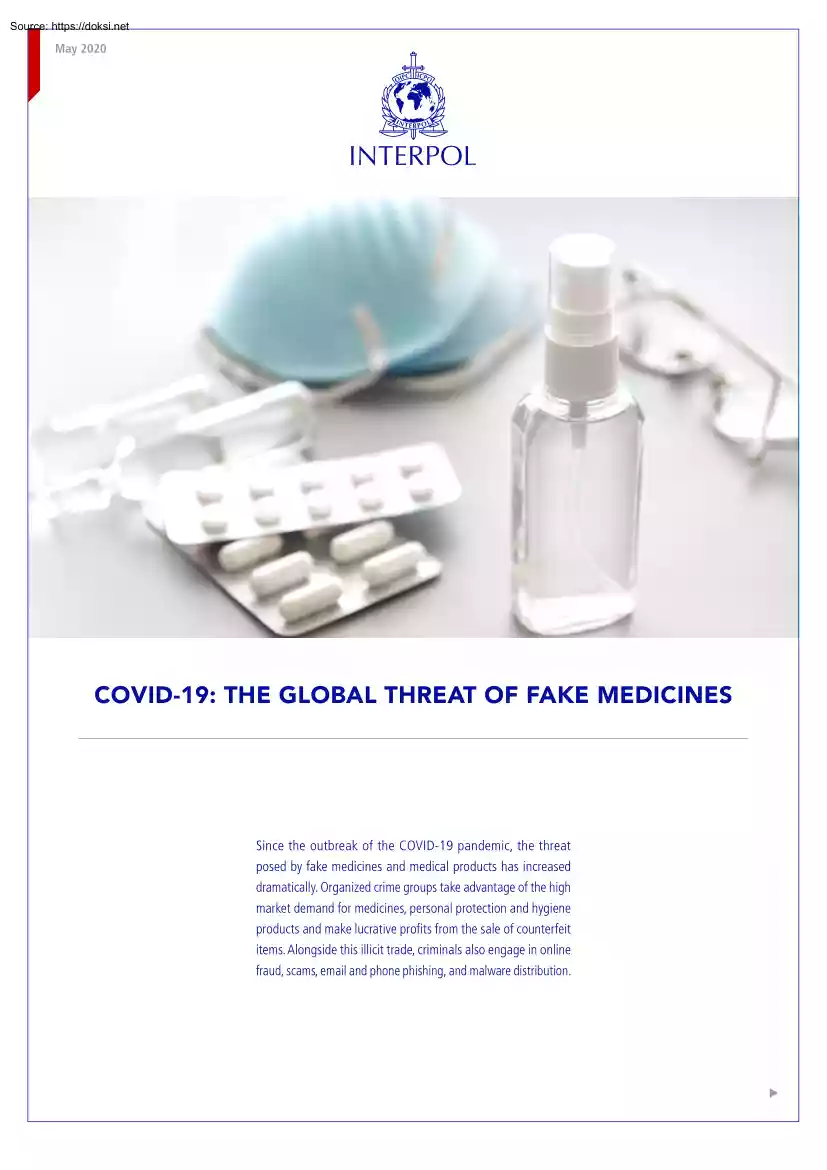
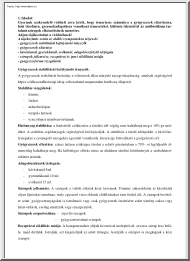
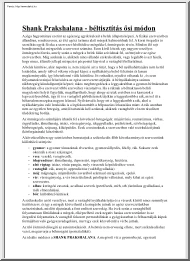
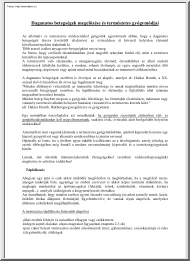
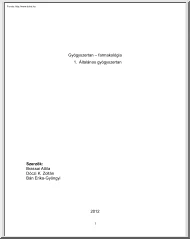
 Írásunkban a műelemzések készítésének módszertanát járjuk körül. Foglalkozunk az elemzés főbb fajtáival, szempontjaival és tanácsokat adunk az elemzés legfontosabb tartalmi elemeivel kapcsolatban is. Módszertani útmutatónk főként tanulók számára készült!
Írásunkban a műelemzések készítésének módszertanát járjuk körül. Foglalkozunk az elemzés főbb fajtáival, szempontjaival és tanácsokat adunk az elemzés legfontosabb tartalmi elemeivel kapcsolatban is. Módszertani útmutatónk főként tanulók számára készült!